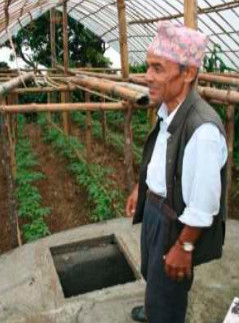वाटर पोर्टल / वर्षाजल संचयन / वाणिज्य विकास – सूक्ष्म वित्तीय
| |
|
|
|
|
|
|

वर्षाजल संचयन ने जल आपूर्ति के लिए काफी सकारात्मक समीक्षाएं हासिल की हैं, हालांकि इसे कुछ नकारात्मक समीक्षाएं भी मिली हैं. इनमें से प्रमुख टिप्पणी यह है कि वर्षाजल संचयन खास तौर पर गरीबों के लिए काफी खर्चीला है.
शुरुआती निवेश अपेक्षाकृत काफी महंगा है, खास तौर पर यह देखते हुए कि यह विकेंद्रीकृत परियोजना और इसमें लघु स्तरीय जल आपूर्ति विकल्प है. हालांकि जब हम जीवन चक्रीय लागत(एलसीसी) पर निगाह डालते हैं तो यह छवि उतनी नकारात्मक नहीं महसूस होती है : उदाहरण के लिए, वर्षाजल संचयन टैंक का औसत जीवन 20 सालों का होता है. साथ ही, वर्षाजल संचयन से अधिक आय होती है, बेहतर शिक्षा मिलती है और बहुत कम स्वास्थ्य संबंधी परेशानियां होती हैं. लेकिन शुरुआती निवेश की लागत कौन अदा करना चाहता है या करने की स्थिति में होता है, इस बात की गारंटी के बावजूद कि एलसीसी सस्ते हैं और निवेश की राशि फायदों की तुलना में तुच्छ है?
Contents
Requirements & limitations
This article page will consist of RAIN’s experiences in the sustainable financing of rainwater harvesting projects from examples in Senegal, Burkina Faso and Nepal. It will reflect upon these experiences and compare them to other research and practices on rainwater harvesting, micro-finance and business development. NGOs and other users will learn about the opportunities and challenges in changing the financial set-up of rainwater programmes.
Description & results
RAIN has implemented 3 pilots on microcredit and rainwater harvesting since 2010 in Nepal and has carried out feasibility studies on the potential of micro-finance in Burkina Faso and Senegal. In Nepal, RAINs partner BSP-Nepal has succeeded to reduce the subsidy amount by 25%, which is now a small loan. Loans are being repaid and first outcomes are promising. An evaluation was carried out by WASTE in 2012, which showed that micro-finance is indeed a feasible option for financing rainwater harvesting systems. In addition, a Masters student from VU University Amsterdam carried out a more qualitative research on microcredit and rainwater harvesting in Nepal.
Based on this study, RAIN is currently developing a business plan (also see Sustainable Financing Tool) to upscale its activities in Nepal and introduce sustainable ways of financing rainwater harvesting in other country programmes. A short guide (2-3 pages) will be developed based on information from Nepal, Burkina and Senegal. It will showcase RAIN's activities in financing and create a platform for discussion and sharing practices on rainwater harvesting.
Examples
- PDF: IRC Symposium 2010 Pumps, Pipes and Promises, Micro-credit and Rainwater Harvesting. By Saskia Nijhof, Bala Ram Shrestha. 2010
- Senegal (yet to come)
- Burkina (yet to come)
Documents, videos and links
- VIDEO: http://bspnepalrhcc.org. This video is coming soon.
